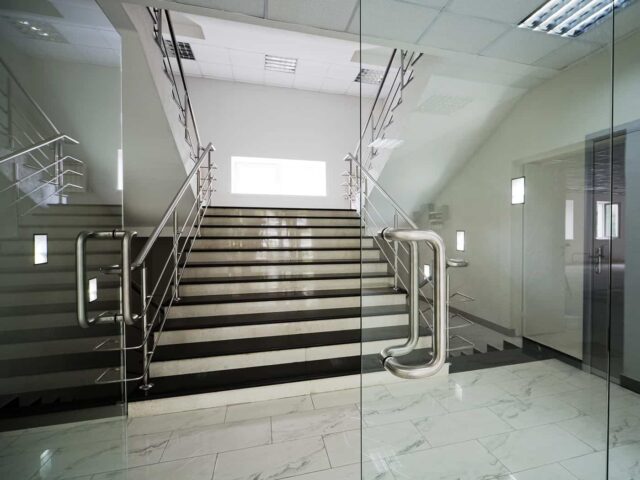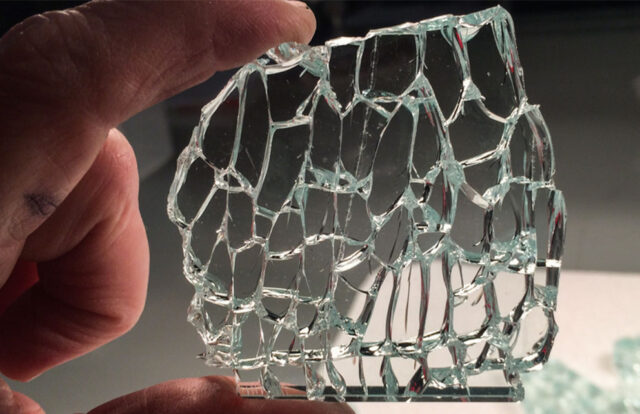
When it comes to choosing the right type of glass for your home or business, safety, strength, and aesthetics are all important factors to consider. Tempered glass doors are becoming increasingly popular due to their numerous benefits. In this article, we will explore the advantages of tempered door glass and why it is an ideal choice for both residential and commercial applications.
What is Tempered Glass and Why is it Ideal for Doors?
Tempered door glass is particularly popular in areas where safety is a top concern, such as schools, hospitals, and public buildings. It can withstand high levels of impact and stress, reducing the risk of injury in case of breakage. Additionally, tempered glass is less susceptible to thermal stress caused by exposure to sunlight or changes in temperature, which can cause regular glass to crack or shatter.
This makes tempered glass doors an ideal solution for outdoor entrances and areas with large windows that receive direct sunlight. Overall, the strength, durability, and safety features of tempered glass make it a top choice for any building or home renovation project that requires high-quality door glass.
Strength and Durability

One of the main reasons why tempered glass is ideal for doors is due to its increased strength and durability. The tempering process makes the glass up to four to five times stronger than regular glass. This means that tempered door glass is more resistant to breakage or shattering, making it a perfect choice for high-traffic areas or locations that experience extreme weather conditions.
Safety Features
In addition to being stronger, tempered glass is also safer than regular glass. When regular glass breaks, it can create large, sharp shards that can cause severe injuries. In contrast, tempered glass shatters into small, relatively harmless pieces upon impact. This greatly reduces the risk of injury, making tempered glass doors a safer option for homes and businesses.
Aesthetics
Tempered glass doors are not only practical and safe, but they also offer a sleek, modern look that can enhance any space. With a variety of styles, finishes, and designs available, tempered door glass can be customized to suit any architectural style or personal preference.
How Does Tempering Make Glass Stronger?

The process of tempering glass involves heating it to extremely high temperatures and then cooling it rapidly. This process alters the physical properties of the glass, resulting in a stronger and more durable material. Let’s dive deeper into how this process works.
The Tempering Process
The first step in the tempering process is to cut and shape the glass to the desired dimensions. Once the glass has been cut and prepared, it is heated to temperatures of up to 620 degrees Celsius (1,148 degrees Fahrenheit). This intense heat causes the glass to soften and become more pliable.
Following the heating stage, the glass is then rapidly cooled by blasting it with high-pressure air. This rapid cooling process, known as quenching, causes the outer surfaces of the glass to contract and compress, while the interior of the glass cools more slowly. This difference in cooling rates creates a layer of compression on the outer surfaces of the glass, which significantly increases its strength and durability.
Compression Strength
The compression strength of tempered glass is what makes it so much stronger than regular glass. When the outer surfaces of the glass contract and compress during the quenching process, it creates a layer of compression that can withstand a significant amount of force. This compression layer makes the glass more resistant to breakage and shattering, which is why tempered glass is often used in applications where safety and durability are important.
Resistance to Temperature Changes
Another benefit of the tempering process is that it makes the glass more resistant to temperature changes. Regular glass can crack or shatter when exposed to sudden temperature fluctuations, such as those experienced during extreme weather conditions or when hot objects come into contact with the glass. In contrast, tempered glass is better able to withstand these changes in temperature without breaking, making it a more reliable and durable choice for doors and windows.
Why is Tempered Glass Safer than Regular Glass?

As mentioned earlier, tempered glass is much safer than regular glass due to the way it breaks. When subjected to extreme force or impact, tempered glass shatters into small, relatively harmless pieces. This unique breakage pattern greatly reduces the risk of injury associated with broken glass.
Reduced Risk of Injury
When regular glass breaks, it can create large, sharp shards that can cause severe injuries. This is especially concerning in high-traffic areas, such as doors and windows, where the risk of someone coming into contact with broken glass is higher. Tempered glass, on the other hand, breaks into small, cube-like pieces that are less likely to cause injury. This makes tempered glass doors a much safer option for homes and businesses.
Enhanced Safety Features
In addition to reducing the risk of injury, tempered glass doors also offer several other safety features. For example, tempered glass is more resistant to break-ins, as its increased strength makes it more difficult for intruders to shatter the glass and gain entry. Furthermore, many tempered glass doors come with additional security features, such as reinforced frames and locking mechanisms, which provide added protection for your home or business.
Compliance with Building Codes
In many regions, building codes require the use of safety glass, such as tempered glass, in certain applications. This includes areas where there is a higher risk of human impact, such as doors, sidelights, and bathroom enclosures. By choosing tempered glass doors for your home or business, you can ensure that you are in compliance with local building codes and regulations.
In conclusion, tempered door glass offers a wealth of benefits that make it an ideal choice for both residential and commercial applications. Its strength, durability, and safety features, combined with its versatility, energy efficiency, low maintenance, and enhanced aesthetics, make it a top choice for homeowners, architects, and designers alike.









